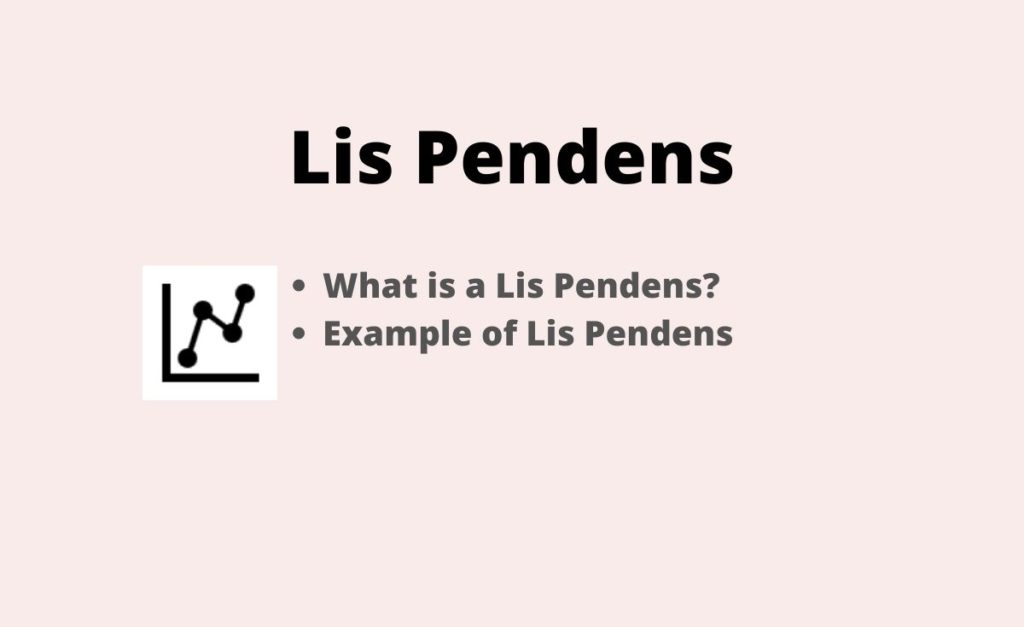What does Lis Pendens mean?
A Lis Pendens a.k.a pendency of action is a notice that is recorded in the public records to indicate that a property is subjected to the legal pending action. The lis pendens is usually used against borrowers who were not able to meet their monthly payments.
The Lis Pendens can be filed to your local county by your moneylender. Before the Lis Pendens is filed, in some cases, the lender notifies the borrower that they are falling behind on their payments and urges them to take proper actions. When the borrower cannot find a way to come up with money or take proper steps to avoid legal action; the lender will file the Lis Pendens to the local government office.
The Lis Pendens will mark the beginning of the legal process in which the lender will repossess the property.
Example of Lis Pendens
Let’s say that you bought a house on a 30-year fixed-rate mortgage and you have been making your monthly payments for the last few years. At this time, you still owe the bank a lot of money. Unfortunately, you lost your job and can no longer meet your monthly payments.
After falling behind, your bank will notify you about the issue and let you know that proper steps must be made to meet your financial requirements. At this time, you will have three options which are:
- Refinance the house: The refinance will let you get a brand new mortgage from a different provider with new terms. This will be impossible since you don’t have an income.
- Short sale: Your lender can let you put the house on the market and pay them once the house is sold. The lender will be the one who will accept or deny the offer. This could work if your lender lets you sell the house.
- Foreclosure: This is the last step that everyone tries to avoid.
If you cannot refinance or short sale the house, the lender will file the Lis Pendens with your local county which will notify you that the house is under pending legal actions.
At this time, there is no going back and the foreclosure will most likely take a place.
If you come up with long-lasting and acceptable ways to cover your payments, some lenders may agree to cancel the foreclosure and let you continue to make payments.
>>MORE: What Is A Credit Score And How Does It Work?
Why would the lender cancel the foreclosure process?
Foreclosure is expensive to both the lender and borrower.
The foreclosure will affect the credit history and credit score of the borrower. As noted by the Financial Samurai, you can lose up to 160 points depending on your credit score. In addition, the foreclosure will stay on your credit history for many years. This will reduce your chances of having a mortgage or loan approval in the future.
On the other hand, foreclosures affect moneylenders. The lender will go through the legal process, followed by an auction to sell the house. If the house is not sold during the auction, the lender will keep the house as real estate owned(REO) and sell it to its clients or list it to multiple listing services (MLS). All these activities will cost the company money and time that could have been used to take care of other projects.
In addition, there is no guarantee that the lender will be able to recover the unpaid balance. There are chances that the house will be sold for less money. As a result, the lender will directly lose money on this investment.
To avoid all these loses and time consuming procedures, some lenders will choose the cancel the foreclosure process as long as the lender has meaningful ways to cover their payments.









